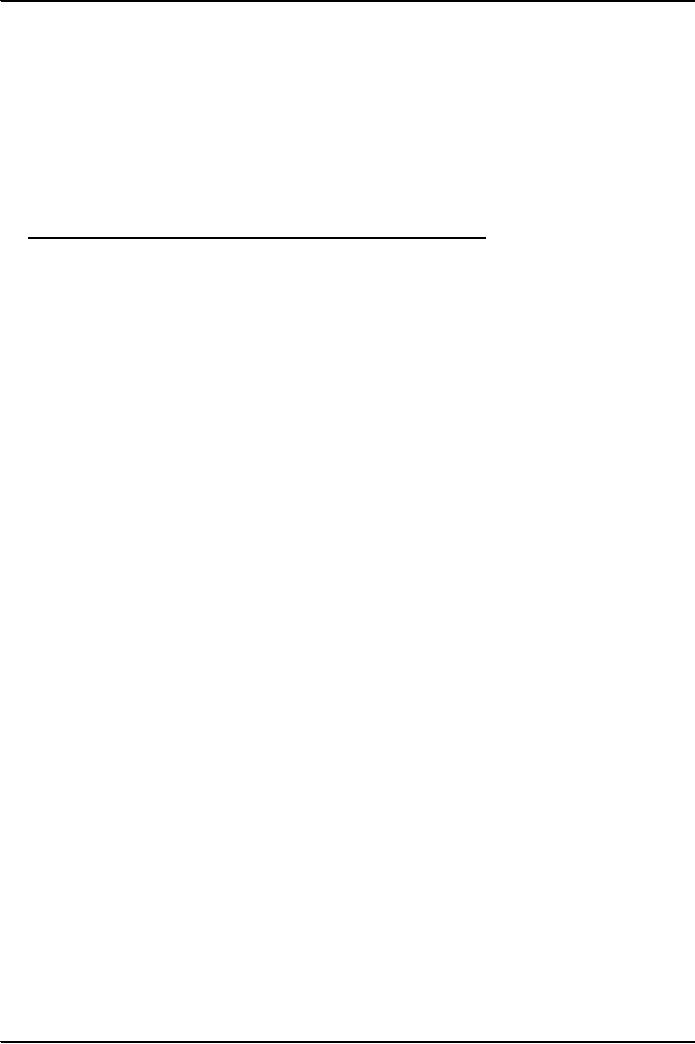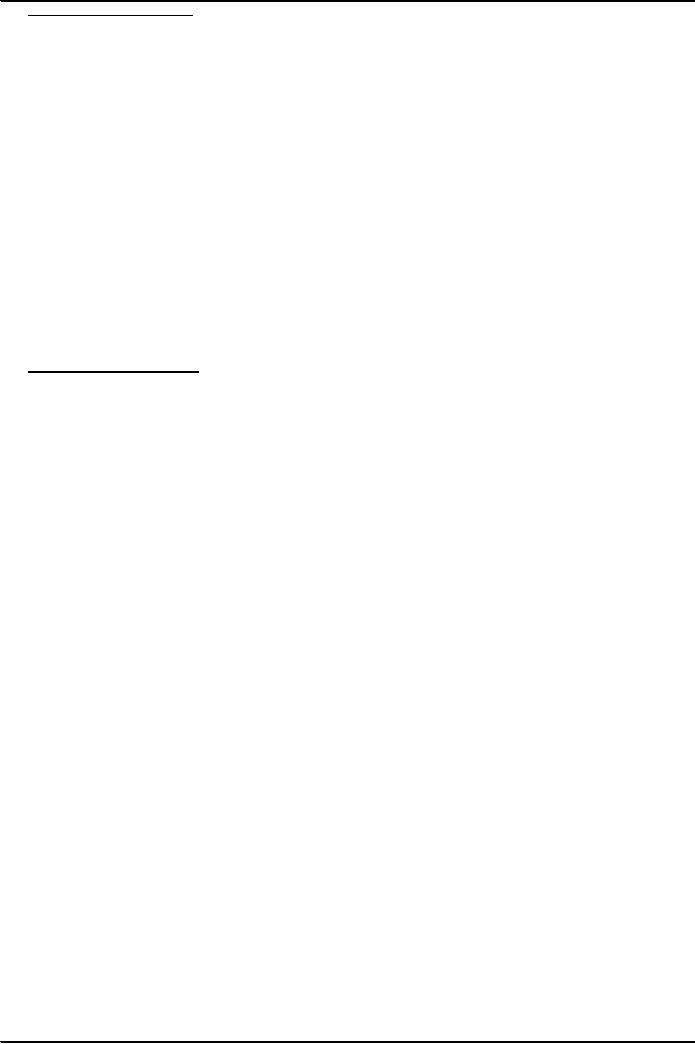 |

Taxation
Management FIN 623
VU
MODULE
15
LESSON
15.41
TAX
RETURNS & ASSESSMENT OF
INCOME
UNIVERSAL
SELF ASSESSMENT
SCHEME
Assessments
Process
whereby claims of taxpayers
are verified by tax authorities and
taxable income & tax thereon
is
determined
according to the ordinance.
Ways
of Framing Assessment under Normal Tax
Regime
1.
Normal Assessment/ USAS
2.
Provisional Assessment
3.
Best Judgment
Assessment
1.
Normal Assessment/Universal Self
assessment Scheme (Sec.
120)
Where
complete return furnished by
taxpayer:
(Other
than revised return u/s
114(6) which can be submitted
within five years of
original return)
The
commissioner shall be taken to
have made an assessment of
taxable income for tax year
and
tax thereon,
equal to amount as specified in the
return.
Return
shall be taken as Assessment
Order by the commissioner.
Return
shall be taken as complete if in
accordance with Sec.
114(2)
(a) If
return is incomplete, notice by CIT to
rectify omissions, deficiencies by
due date (However,
errors
pertaining to taxable income
and tax payable not rectifiable under
this section)
(b) If reply
not submitted by due date incomplete
return submitted shall be treated as
invalid Return.
(c)
Return submitted shall be treated as
complete, if tax payer complied with
requirements of notice
under
Sub. Sec. (3)
(d) No notice
u/s 120(3) after expiration of
one year. (Return & Assessment
attains finality after
expiration
of one year)
Best
Judgment Assessment Sec. 121
(1) where a
person:
(a)
Fails to furnish a return
u/s 114(3) or 114(4)
(b)
Fails to furnish return u/s
143 or 144
(c)
(Return to be filed by non-resident Air
Carriers or Shipping Companies)
(d)
Fails to furnish return u/s
116 (Wealth Statement on notice by
CIT or where income is
rupees
500,000/
and above.)
(e)
Fails to furnish documents
u/s 174 (prescribed
documents)
Assessment
Order by Commissioner
Shall
state the following
details:
Taxable
Income
Tax
Due
Amount
of Tax Paid.
Tax
Payable
Time,
place & manner of appealing the
assessment order.
Amendment
of Assessments (Sec
122)
Amendments
shall be made when the commissioner is
satisfied on the basis of definite
information that:
Any
income chargeable to tax has
escaped assessment; or
Total
income has been
under-assessed, or assessed at too
low a rate, or has been the
subject of
excessive
relief or refund; or
Any
amount under a head of income has
been misclassified.
Revision
by the Commissioner Sec 122
A
The
commissioner shall not
revised any order, if
(a) an
appeal against the order
lies to the commissioner ( Appeals) or to
the appellate tribunal, the
time
within which such appeal
may be made has not expired;
or
(b) the
order is pending in appeal before the
commissioner ( appeals) or has
been made the subject
of
appeal
to the appellate tribunal.
Revision
by the Regional Commissioner Sec 122
B
Revision
can be made by RCIT at his
own or on an application made by the tax
payer relating to issuance of
an
exemption or lower rate certificate
with regard to collection or deduction of
tax at source.
93

Taxation
Management FIN 623
VU
2.
Provisional Assessment
(Sec.
123)
Sec.
123(1) Where,
Concealed assets impounded by
any department, agency of
federal or provincial
govt.
the
commissioner may issue to the
person a provisional assessment
order or provisional
amended
assessment
order, as the case may be,
for the last completed tax
year of the person taking
into account the
concealed
asset.
Concealed
asset means any property or
asset acquired from any
income subject to tax, in the
opinion of
CIT.
Assessment
giving effect to an order Sec.
124
Special
Provisions with respect to
Assessment Sec.
125
In
relation to disputed properties assessment
within one year from the
date of decision by court.
Sec.
126 Evidence of
Assessment:
Production
of assessment order or certified
copy thereof shall be
conclusive evidence.
An
assessment order may not
deem void, void able
for want of form, hence not
to be quashed.
An
order may not be affected by
reason of any mistake,
defect or omission therein, if in
substance &
effect in
conformity with the
ordinance.
Sec.
124-A modification of an Order by
Commissioner
· CIT
shall follow a decision on a question of
law by H.C or ITAT even in
cases where appeal has
been
filed.
On reversal CIT shall modify
order.
· Sec.
124:
Assessment to give effect to an order of
CIT (A), ITAT, High
Court, Supreme Court.
3.
Self Assessment
Scheme
Salient
features of Universal Self
Assessment Scheme
1)
Scope of the
scheme:
Section
120 (1) (2):
(1)
Where a taxpayer has furnished a
complete return of income
(other than a revised return
under sub-
section
(6) of section 114) for a
tax year ending or after the 1st day
of July, 2002
(a)
the commissioner shall be taken to
have made an assessment of
taxable income for that
tax
year,
and the tax due thereon, equal to
those respective amounts
specified in the return;
and
scheme.
(b) the
return shall be taken for
all purposes of this Ordinance to be an
assessment order issued
to
the
taxpayer by the Commissioner on the day
the return was furnished.
(2) A
return of income shall be
taken to be complete if it is in
accordance with the provisions of
sub-
section
(2) of section 114.
(Prescribed Form, Relevant
particulars & Signed)
Section
114 (2)
(2) A
return of income:
(a)
shall be in the prescribed form
and shall be accompanied by
such annexure statements
or
documents
as may be prescribed;
(b)
Shall fully state all the
relevant particulars or information as
specified in the form of
return,
including
a declaration of the records kept by the
taxpayers;
(c)
shall be signed by the person, being an
individual, or the person's
representatives where
section
172
applies.
2)
Requirements of a Return
Rule
34 sub-rule (2), (3) and
(4):
(2) a
return of income as required to be furnished under
section 114 shall be in the
form specified in
(a)
Part-i (for companies);
(b)
Part-ii (for non- salaried
individuals and association of
persons)
(c)
Part-iii A (for salaried
individuals having other sources of
income etc, as attachment
to
employer's
certificate in lieu of return of income);
of the Second Schedule to these
rules
(3) A
return of income shall be
verified in the manner specified in the
form
(4) A
return of in come shall be
accompanied by the following
namely;
a.
Applicable documents;
b.
Statements;
c.
Certificates; and
d.
Annexes
3)
Short Documents
Notice
Section
120 (3) (4) (5)
(6)
94

Taxation
Management FIN 623
VU
(3)
Where the return of income furnished is
not complete, the Commissioner
shall issue a notice to the
taxpayer
informing him of the deficiencies
(other than incorrect amount of tax
payable on taxable
income,
as specified in the return, or short
payment of tax payable) and directing
him to provide such
information,
particulars, statement or documents by
such date specified in the
notice.
(4)
Where a taxpayer fails to
fully comply by the due date,
with the requirements, of the notice under
sub-
section
(3), the return furnished shall be
treated as an invalid return as if it
had not been
furnished.
(5)
Where, in response to a notice under
sub-section (3), the taxpayer
has, by the due date, fully
complied
with
the requirements of the notice, the return furnished
shall be treated to be complete on the
day it
was
furnished and the provisions of sub-section
(1) shall apply
accordingly
(6) No
notice under Sub-section (3) shall be
issued after the end of the financial
year in which return
was
furnished,
and the provisions of sub-section (1)
shall apply accordingly.
4)
Selection for Audit Section
177
The
Central Board of Revenue may lay
down criteria for selection of
any person for any
audit of
person's
income tax affairs, by the
Commissioner.
The
Commissioner shall select a
person for audit in
accordance with the criteria laid
down by the
Central Board of
Revenue under sub-section
(1)
The
Central Board of Revenue shall keep the
criteria confidential.
(4) In
addition to the selection referred to in
sub-section (2), the Commissioner
may also select a
person
for an
audit of the person's income tax affairs
having regard to--
i. the
person's history of compliance or
non- compliance with this
Ordinance;
ii.
the amount of tax payable by the
person;
iii.
the class of business conducted by the
person; and
iv.
any other matter which in
the opinion of Commissioner is material
for
determination
of correct income.
(5)
After selection of a person
for audit under sub-section
(2) and (4), the
Commissioner shall conduct an
audit
of the income tax affairs (including examination of
accounts and records, enquiry
into
expenditure,
assets and liabilities) of
that person.
(6)
After completion of the audit under
sub-section (5) or sub-section
(8), the Commissioner may,
if
considered
necessary, after obtaining taxpayer's
explanation on all the issues raised in
the audit, amend
the
assessment under sub-section (1) or
sub-section (4) of section
`122, as the case may
be.
(7)
The fact that a person has
been audited in a year shall
not preclude the person from
being audited again
in the
next and following years
where there are reasonable
grounds for such audits,
particularly having
regard
to the factors in sub-section
(4).
(8)
The Central Board of Revenue may
appoint a firm of Chartered Accountants
to conduct an audit of the
income
tax affairs of any person
and the scope of such audit
shall be as determined by the Central
Board of
Revenue on a case to case
basis.
(9)
Any person employed by a
firm referred to in sub-section (8)
may be authorized by the
Commissioner,
in
writing, to exercise the powers in
sections 175 and 176for the
purpose of conducting an audit
under
that
sub-section. (Power to enter
and search premises &
Notice to obtain information or
evidence
respectively)
Section
120 (1A)
Notwithstanding
the provisions of sub-section (1) of
Section 120, the Commissioner
may select a person
for an
Audit of his income tax
affairs under Section 177
and all the provision of
that section shall
apply
accordingly.
95
Table of Contents:
- AN OVERVIEW OF TAXATION
- What is Fiscal Policy, Canons of Taxation
- Type of Taxes, Taxation Management
- BASIC FEATURES OF INCOME TAX
- STATUTORY DEFINITIONS
- IMPORTANT DEFINITIONS
- DETERMINATION OF LEGAL STATUS OF A PERSON
- HEADS OF INCOME
- Rules to Prevent Double Derivation of Income and Double Deductions
- Agricultural Income
- Computation of Income, partly Agricultural,
- Foreign Government Officials
- Exemptions and Tax Concessions
- RESIDENTIAL STATUS & TAXATION 1
- RESIDENTIAL STATUS & TAXATION 2
- Important Points Regarding Income
- Geographical Source of Income
- Taxation of Foreign-Source Income of Residents
- Exercises on Determination of Income 1
- Exercises on Determination of Income 2
- SALARY AND ITS COMPUTATION
- Definition of Salary
- Significant points regarding Salary
- Tax credits on Charitable Donations
- Investment in Shares
- SALARY AND ITS COMPUTATION EXERCISES 1
- SALARY AND ITS COMPUTATION EXERCISES 2
- SALARY AND ITS COMPUTATION EXERCISES 3
- Tax treatment of Gratuity
- Gratuity Exercise
- PROVIDENT FUND
- Exemptions on Business income, Treatment of Speculation Business
- Deductions Allowed & Not Allowed
- Deductions: Special Provisions, Depreciation
- Methods of Accounting
- Taxation of Resident Company
- Taxation of Companies: Exercises
- Computation of Capital Gain
- Disposals Not Chargeable To Tax
- TAX RETURNS & ASSESSMENT OF INCOME UNIVERSAL SELF ASSESSMENT SCHEME
- Normal Assessment, USAS, Provisional Assessment, Best Judgment Assessment
- ADVANCE TAX COLLECTION & RECOVERY OF TAX PENALTIES & PROSECUTION
- What is Value Added Tax (VAT)?
- SALES TAX
- SALES TAX RETURNS